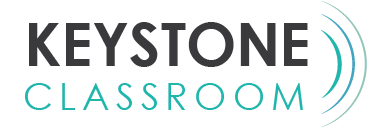Your Child’s Care Team
As a parent of a child with hearing loss or auditory processing disorder, you have to be their biggest advocate. It is important to inform yourself on your child’s rights and the appropriate personnel involved in your child’s care.
Your child’s IEP team should include the following:
- Parent(s)
- Student (when appropriate)
- Your child’s regular education teacher (at least one)
- Your child’s special education teacher (at least one)
- School system representative
- An individual who can interpret the instructional implications of evaluation results
- Others who have knowledge or expertise about your child
** for students with hearing loss and auditory processing disorder, an audiologist is the BEST person to be interpreting those audiological results to the rest of the IEP/504 team!!!
Here are what some of roles of the professionals that may be on your child’s care team:
Member of the child’s educational team who works closely with the general education teacher in order to modify or adapt lesson plans to the needs of the student.
The role of the special educator varies according to the individual needs of the student and how the special educator and general education teacher work together. The special educator may review classroom materials or plan one-on-one instruction for the student and monitor their progress depending on the student’s needs and educational goals. It is also the special educator’s responsibility to regularly develop, review, and modify a student’s IEP or hold meetings to discuss these plans with parents, teachers, and other members of the child’s care team.
Parents and caregivers are also an imperative part of their child’s 504/IEP team! Parents should feel comfortable raising questions or concerns, and giving opinions on their child’s care.
Member of the child’s educational team to combine communication goals with academic and social goals in order to prevent or treat the development of speech and language disorders.
The role of the speech pathologist is to help students with hearing loss develop, understand, and use basic speech and language concepts. Speech services vary depending on an individual student’s needs. These services also integrate classroom objectives and support reading and writing in order to increase the students’ understanding of texts and lessons.
Member of the child’s educational team to advocate for their hearing needs.
The role of an educational audiologist is to ensure that students with hearing loss and auditory processing disorder have access to auditory information in the classroom. This includes the voice of their teacher as well as that of their classmates. The educational audiologist evaluates a student’s auditory needs in their environment/classroom to determine what, if any, equipment needs to be used (including personal hearing aids/CI’s and HAT/FM systems). The audiologist will also evaluate if any acoustical changes or teaching strategies can help with the child’s ability to access sound in the classroom.
See the educational audiologists full scope of practice description in the attached document from the Educational Audiology Association, published in August 2019.
Member of the child’s educational team to advocate for their hearing needs and educational goals.
The role of the teacher of the deaf is to assist in the development of communication skills and facilitate personal, social, and intellectual development in students with an educationally significant hearing loss. Not all children with hearing loss qualify for teacher of the deaf services. The teacher of the deaf is responsible for assistance with setting academic goals and working on adaptive/self-advocacy skills of the student.
Educational audiologists and teachers of the deaf and hard of hearing (TODHH) both provide support to children with hearing loss and their teachers and have many overlapping skills.
Schools administrators and staff do not always understand how the roles of each profession are delineated and assume TODHH can provide educational audiology services, when these professions are not interchangeable.
This article helps outline those roles to help school administrators understand the roles of each professional. When TODHH and audiologists partner, they can ensure that all of a student’s needs are met.
Speak With An Expert To See What's Right For Your Child
Visit our new student referral process page or Keystone Classroom protocol page to see what our recommended timeline of student services is.
